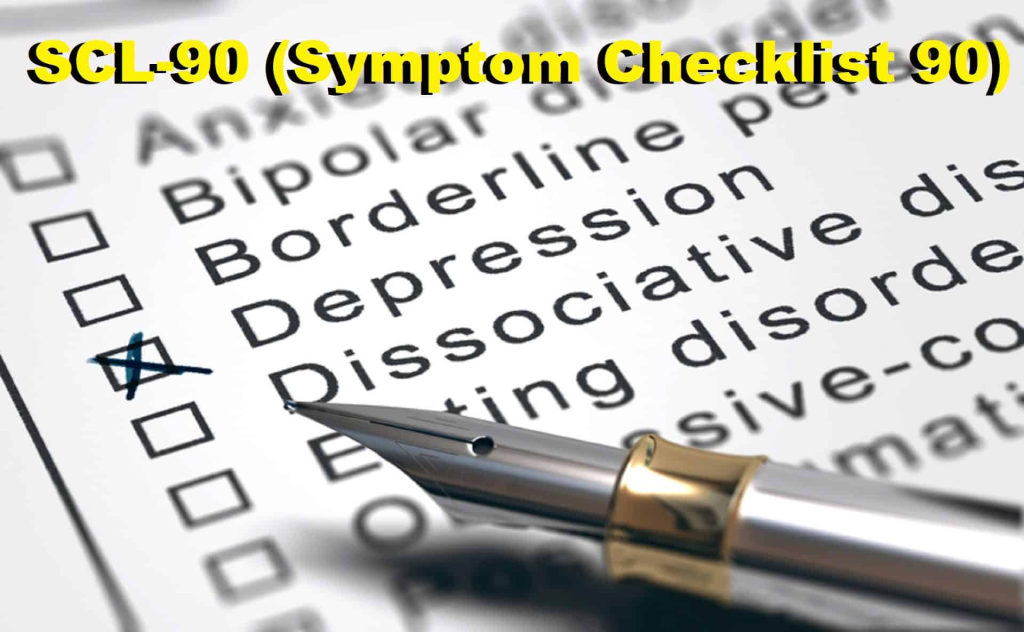The Symptom Checklist-90 (SCL-90) is a widely used psychological assessment tool designed to measure a broad range of mental health symptoms. Whether you’re a healthcare professional, researcher, or someone curious about your psychological well-being, understanding the SCL-90 can provide valuable insights.

What Is the SCL-90?
The SCL-90 is a 90-question self-report inventory that evaluates psychological distress across multiple symptom dimensions. Developed in the 1970s, it helps identify emotional, cognitive, and behavioral patterns that may indicate mental health concerns.
Who Uses the SCL-90?
✔ Therapists & Psychiatrists – To assess symptoms and track treatment progress.
✔ Researchers – For studies on mental health conditions.
✔ Individuals – As a self-screening tool (though not a diagnostic substitute).
What Does the SCL-90 Measure?
The test evaluates nine primary symptom dimensions, plus additional global distress indices:
- Somatization – Physical discomfort linked to stress (e.g., headaches, nausea).
- Obsessive-Compulsive (OC) – Unwanted thoughts or repetitive behaviors.
- Interpersonal Sensitivity – Feelings of inadequacy or discomfort in social situations.
- Depression – Sadness, hopelessness, loss of interest.
- Anxiety – Nervousness, tension, panic.
- Hostility – Anger, irritability, aggressive thoughts.
- Phobic Anxiety – Fear of specific objects or situations.
- Paranoid Ideation – Distrust or suspicion of others.
- Psychoticism – Unusual or disordered thinking.
It also calculates:
- Global Severity Index (GSI) – Overall psychological distress.
- Positive Symptom Total (PST) – Number of symptoms reported.
- Positive Symptom Distress Index (PSDI) – Intensity of symptoms.
How Does the SCL-90 Work?
- Format: You rate each symptom on a 0-4 scale (from “Not at all” to “Extremely”).
- Duration: Takes 12-15 minutes to complete.
- Scoring: A clinician or scoring software calculates results.
Is the SCL-90 a Diagnostic Tool?
No—it’s a screening tool, not a formal diagnosis. High scores suggest areas of concern but require follow-up with a mental health professional.
Pros & Cons of the SCL-90
✅ Advantages
✔ Broad symptom coverage – Assesses multiple mental health areas.
✔ Quick & easy – Faster than many clinical interviews.
✔ Useful for tracking progress – Helps monitor therapy effectiveness.
❌ Limitations
✖ Self-report bias – Relies on honesty and self-awareness.
✖ Overlap in symptoms – Some items may apply to multiple conditions.
✖ Not diagnostic – Should be used alongside other assessments.
Where Can You Take the SCL-90?
- Mental health clinics (often administered by therapists).
- Online platforms (some websites offer self-test versions).
- Research studies (used in psychological and medical research).
Note: Free online versions may lack clinical validation—always discuss results with a professional.
Should You Take the SCL-90?
If you’re experiencing:
🔹 Persistent sadness, anxiety, or stress
🔹 Unexplained physical symptoms
🔹 Difficulty managing emotions or relationships
…the SCL-90 can help identify areas of concern. However, always seek a professional evaluation for accurate diagnosis and treatment.
Final Thoughts
The SCL-90 is a valuable tool for assessing mental health symptoms, but it’s not a substitute for professional care. If your results indicate distress, consider reaching out to a therapist or doctor for further support.
Have you taken the SCL-90? Share your experience in the comments!
